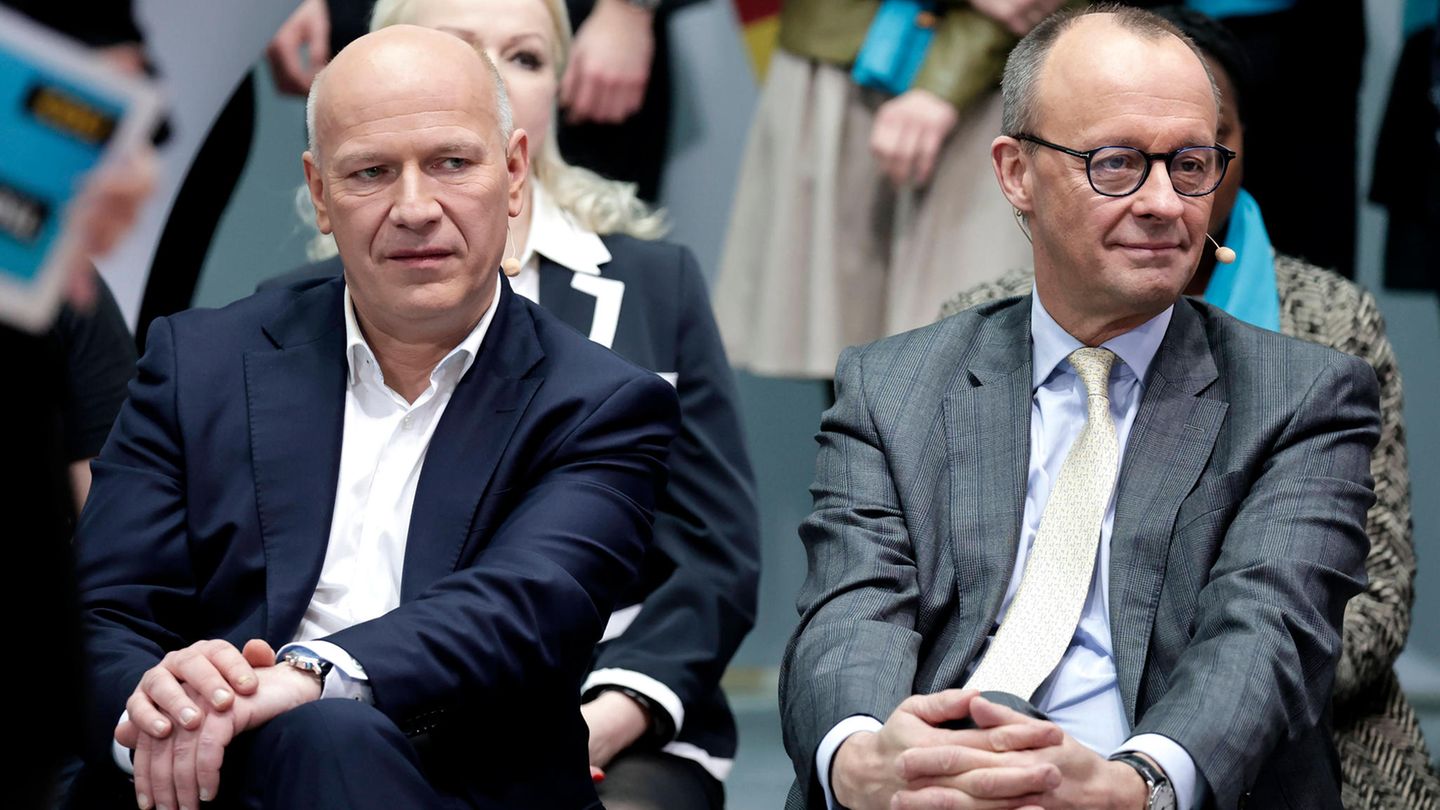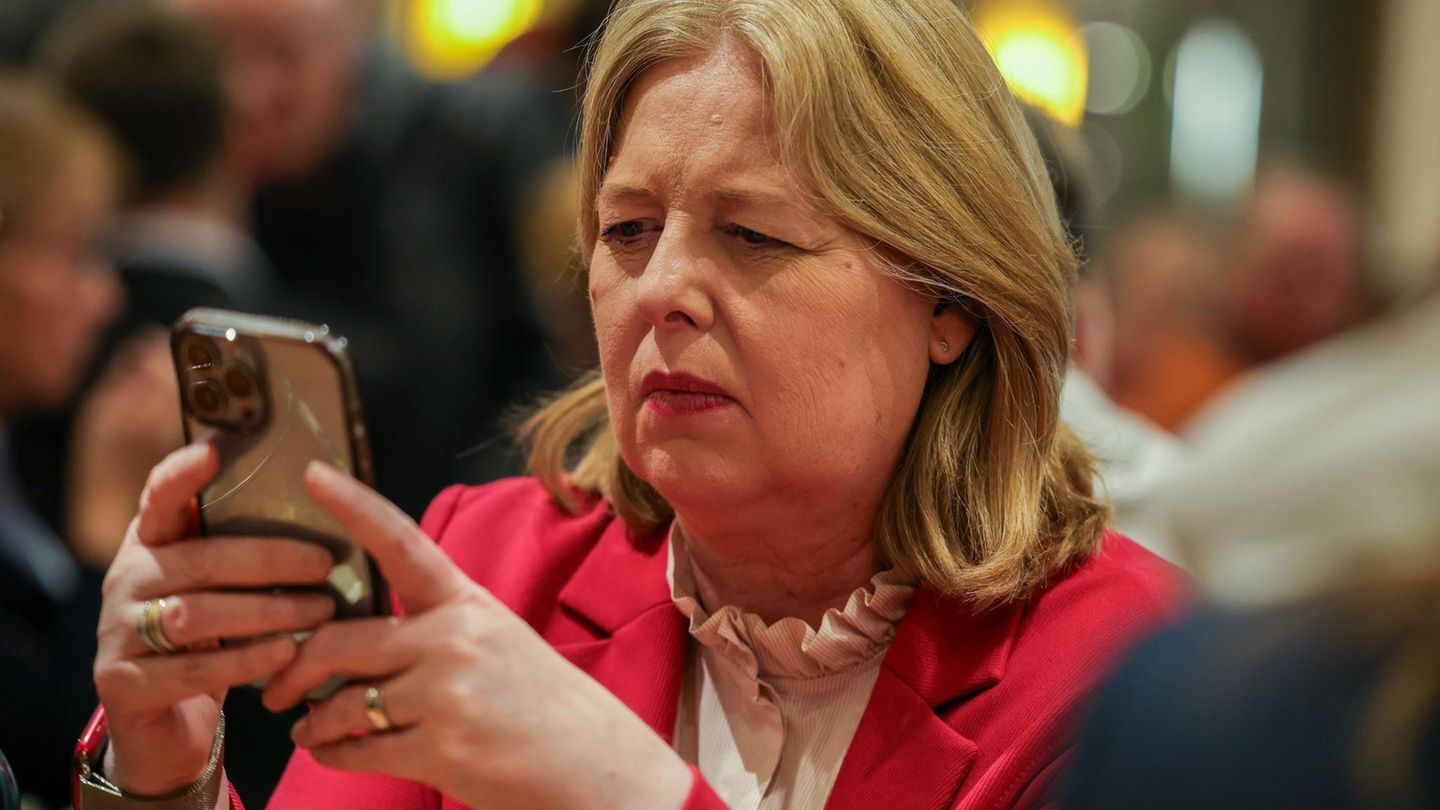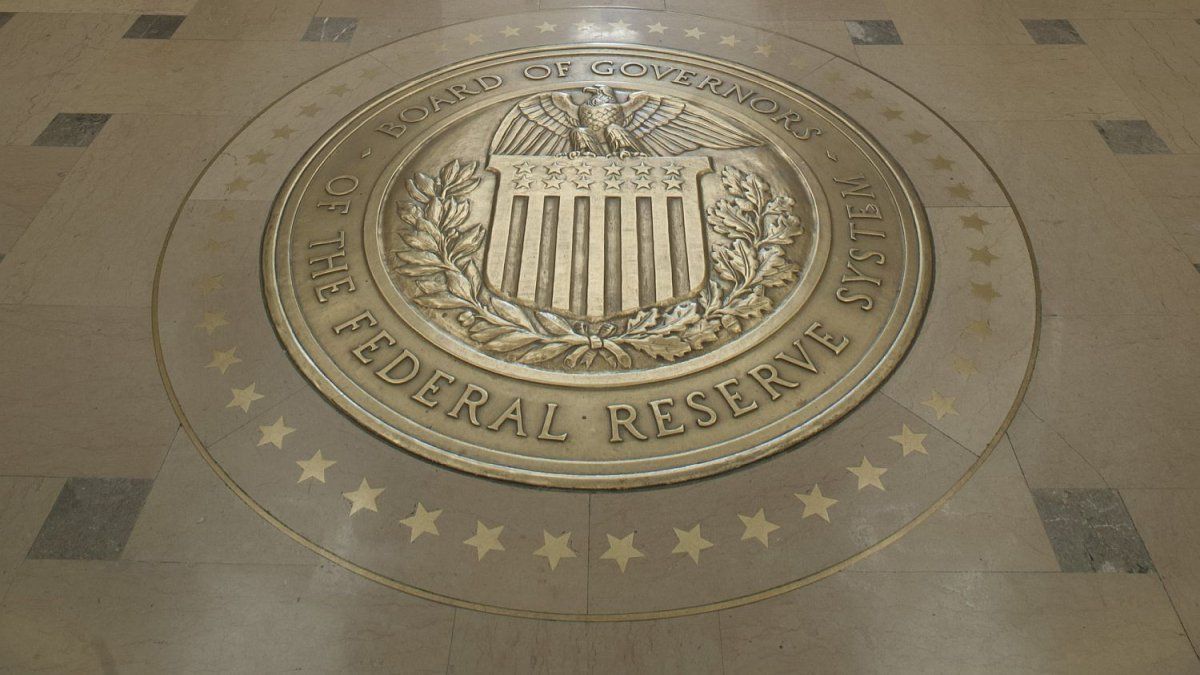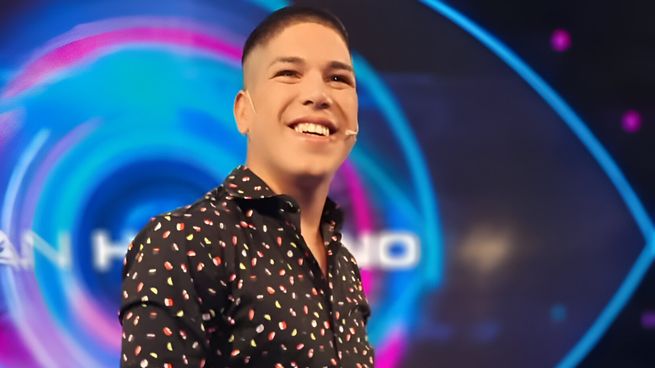Berlin’s head of government Kai Wegner was one of Friedrich Merz’s most loyal musketeers. Now both are deeply at odds. An intrigue is supposed to be the trigger.
How short political half-lives are can be seen in the relationship between Kai Wegner and Friedrich Merz. It wasn’t even four years ago that the then Berlin CDU leader Wegner was considered one of the Sauerlander’s most loyal musketeers.
Back in the spring of 2020, when Friedrich Merz ran for chairmanship of the federal party for the second time. Against Armin Laschet and Norbert Röttgen. Wegner was the first state chairman to stand behind Merz and in doing so also took a personal risk. Wegner said about Merz that he felt “a very clear mood” for him.
Merz defended Wegner in Neukölln
The thanks came three years later. At the beginning of 2023, Wegner came under suspicion of racism shortly before the re-election for the Berlin House of Representatives: his group wanted to query the first names of the suspects after the riots on New Year’s Eve in Neukölln. Merz made a demonstrative appearance together with Wegner in Neukölln.
Tempi passati, times gone by. Today the two companions are deeply divided and no longer speak to each other, but only about each other.
The preliminary highlight was Friedrich Merz’s speech in the Bundestag on Tuesday. The Union faction leader used the debate on the budget crisis to not only give a message to the Chancellor, but also to the Governing Mayor of Berlin. “The decisions are made in the German Bundestag and not in Berlin’s town hall,” said Merz, referring to the debate about the debt brake. A few days earlier, Wegner had been the first CDU regent to call for a softening. As a thank you, Merz now declared him a little provincial prince with no expertise. Public humiliation couldn’t be worse.
What just happened? Merz and Wegner have known each other for many years, from their previous time in the Bundestag together. They don’t just use first names. Politically, they also belong to the same conservative camp. What drove the two party friends apart? Or rather, turned against each other?
“A political assassination attempt”
Anyone who goes looking for clues will hear different versions.
One goes like this: In the fall of 2022, opposition leader Kai Wegner is preparing for the repeat election of the Berlin House of Representatives when a rumor starts making the rounds. Merz and his then CDU general secretary Mario Czaja campaigned internally for former health minister Jens Spahn to run in Berlin. Wegner wouldn’t have a chance anyway. Its CDU only ended up in second place behind the SPD in the actual 2021 election. Looking back, a CDU insider calls the alleged move a “political assassination attempt”.
Wegner sticks to his candidacy again and wins the following election with a lead of almost ten percentage points. But the beef is not over. In September 2023, Merz unnecessarily declared at the Gillamoos, a legendary Bavarian folk festival, that the infamous Berlin district of Kreuzberg, in contrast to Gillamoos, was “not Germany”. And in doing so, he stabs his Berlin party colleague in the back, who has to assert himself in a politically left-wing city.
The unfortunate third in the league
The other version goes like this: The attempt to unsee Wegner as the top candidate for Berlin comes from the Berlin CDU politician Mario Czaja, with whom Wegner is said to have had a deep enmity from the time of the Junge Union. Wegner was correspondingly less than enthusiastic when Merz made Czaja general secretary of the CDU in 2022.
This version says that Merz had nothing to do with the Berlin intrigue surrounding Wegner’s top candidacy, but immediately distanced himself from the rumor. But Wegner still continues to stand in the way.
It is true that Merz also got into a lot of trouble within the party in the summer when he hinted at the possibility of municipal cooperation with the AfD in a summer interview. And that Wegner was once again the first CDU state leader to comment on the matter. Just not this time to support him. “The CDU cannot, does not want and will not work with a party whose business model is hate, division and exclusion,” Wegner immediately tweeted at the time. And it was hinted that Merz has not yet been chosen as the Union’s candidate for chancellor (“will take part in the talks at a very crucial point”). This will have pleased Bavarian Prime Minister Markus Söder, whose candidacy for chancellor Wegner has already campaigned for in 2021.
There is growing unrest in the party over the noise
With Merz, however, the cloth was likely to have been cut from this moment at the latest. Especially since Merz is known to be extremely resentful. That Wegner recently in star questioned the debt brake, even though Merz had given exactly this as a guideline shortly before, is just another footnote in the dispute.
There are said to have been attempts at discussion. But Wegner refused this, it is said in party circles. He stayed away from the meeting of the CDU presidium at the beginning of the week and also did not appear at a Federal Council dinner of the Union states.
Theoretically, Wegner and Merz don’t need each other. One is measured by success in Berlin and only by that. The other knows that one is not well connected in federal politics and is hardly in a position to incite an uprising.
But because the dispute is damaging the party’s reputation, internal unrest is growing. The noise is “unnecessary on both sides,” says one person. Negotiators therefore try to mediate between the disputers. With initial success: On Wednesday, Merz announced on the sidelines of an interview on ntv that he wanted to speak to Wegner in the next few days. They have arranged to meet each other, says Merz. Those around him are keeping quiet about where and when the reconciliation meeting will take place. The two will probably no longer be best friends. But if they were no longer pretty much the best party enemies, the CDU would have gained a lot.
Source: Stern
I have been working in the news industry for over 6 years, first as a reporter and now as an editor. I have covered politics extensively, and my work has appeared in major newspapers and online news outlets around the world. In addition to my writing, I also contribute regularly to 24 Hours World.




